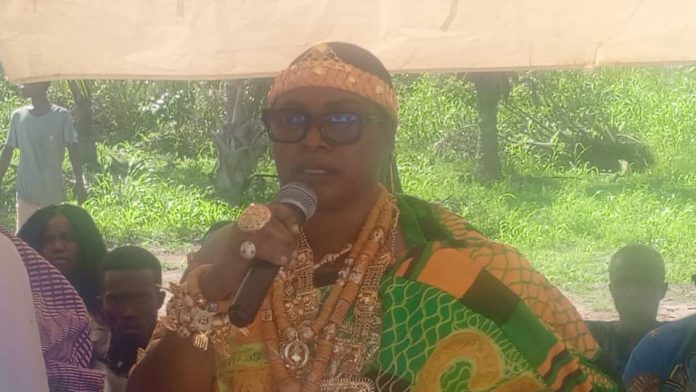Mpuntuhen of Anomabo-Oboadze in the Mfantseman Municipality in the Central Region, Nana
Akua Adepa Fordjour II, has pledged her commitment to changing the lives of the people through Technical, Vocational Training and job creation.
She has explained that this would be one of the surest means to help the youth in the area to acquire employable skills and also create sustainable jobs for them, so that they (youth) can improve their lives and standard of living.
In this respect, she has formally launched a foundation named the Nana Adepa Fordjour II Foundation (NAF 2 Foundation), which would champion her desire to empower the local youth, in line with her vision as Mpuntuhen for the area.
Nana Adepa, who is known in private life as Regina Nana Akua Fordjour, made this known during her colourful coronation ceremony on Saturday at Anomabo-Oboadze.
The event, which featured vibrant traditional displays and the rich culture and customs of the people, was attended by some local traditional and religious leaders as well as the youth and the elderly.
Speaking at the ceremony, she pledged that her Foundation would establish Cassava Processing Factory in the area to process cassava into gari and starch for both local consumption and export.
The Foundation, she said, has earmarked $65,000 for the commencement of the project and expressed the hope that initiative would serve as a catalyst that would create jobs and opportunities for the local people.
She highlighted the broad economic, nutritional and industrial benefits of cassava processing saying, “Cassava is a drought-resistant, easy-to-grow crop crucial for food security and income in tropical regions.
“Processing cassava into products like flour, gari, starch, and ethanol increases its value by extending shelf life and expanding market reach. Economically, this will create jobs in farming, processing, and distribution, support rural livelihoods and enable export opportunities amid rising global demand,” she added.
According to her, Ghana as a developing country with tract of arable land suitable for growing cassava, must take advantage of the various economic activities that could be derived from cassava processing.
The proposed TVET centre, she revealed, would equip the youth, especially vulnerable girls with practical and technical skills that would make them employable after their training.
This initiative, she disclosed, would help to reduce unemployment, improve job readiness and foster self-reliance through vocational careers and small business development contributing to sustainable socio-economic growth.
For more news, join The Chronicle Newspaper channel on WhatsApp: https://whatsapp.com/channel/0029VbBSs55E50UqNPvSOm2z









